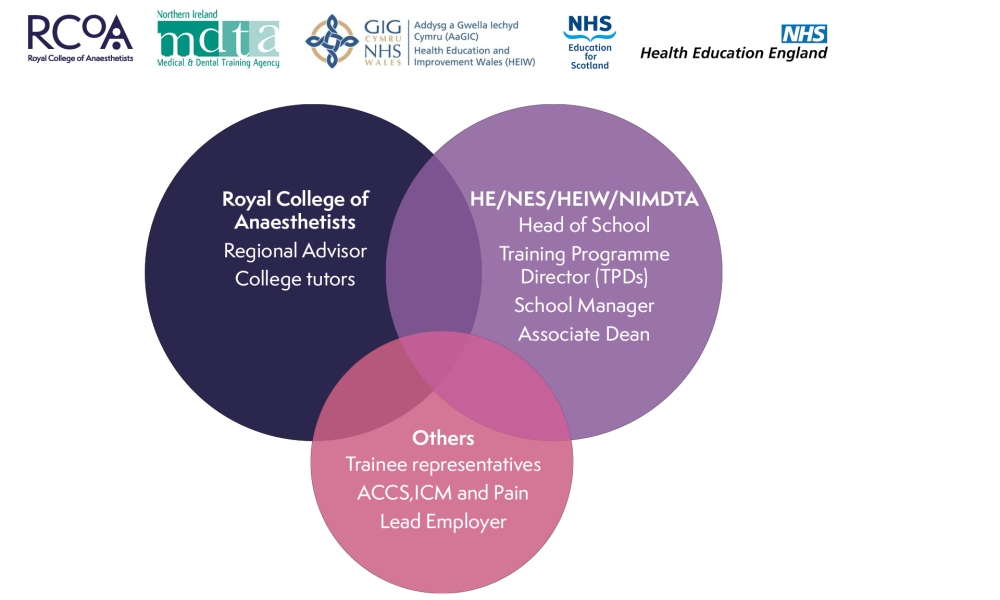Novice Guide
Novice guide
The Royal College of Anaesthetists has produced a guide for novice trainees to support your first three to six months on the training programme.
The Novice Guide contain key documents and a step-by-step guide to help trainees get started on the training programme.
As a College we work closely with the Association of Anaesthetists, the Faculties of Intensive Care Medicine and Pain Medicine, The Intercollegiate Committee for ACCS Training and many other Specialist Societies who focus on specific areas of anaesthetic practice and development.
Listen to NovPod, a beginner's guide to anaesthesia
Key contacts in training
Locally, you will be assigned an Educational Supervisor in your Trust who will have regular meetings with you to discuss all aspects of your training. There will also be a College Tutor in each department who coordinates the delivery of local training and education. These trainers will be your main points of contact throughout Stage 1 and beyond.
Regionally, trainers will form a School of Anaesthesia and come together at a School Board Meeting to ensure your training is meeting national required standards and to get feedback from all stakeholders. Each region will have a similar structure with representation from:
- the Royal College of Anaesthetists (RCoA)
- school of anaesthesia
- NHS England Workforce, Training and Education Directorate (NHSE WT&E) / NHS Education for Scotland (NES) / Health Education and Improvement Wales (HEIW) / Northern Ireland Medical & Dental Training Agency (NIMDTA)
- others including anaesthetist in training representatives, ACCS, ICM, Pain, lead employer, etc.
NHSE WT&E/NES/HEIW/NIMDTA have responsibility for organising regional rotations, ARCPs, recruitment as well as looking after doctors requiring extra support.
Your regional School of Anaesthesia has responsibility for locally delivering the training and experience necessary to fulfil the curriculum requirements.
The GMC has responsibility for regulating doctors, approving postgraduate curricula and awarding CCT or CESR to doctors who have successfully completed their training.
The Royal College of Anaesthetists has responsibility for development of the curriculum and setting national standards required for training and training outcomes. It also hosts your training portfolio (Lifelong Learning platform, LLP.)
IAC Demonstration
The College have also created a demonstration of an IAC, including examples of the evidence required.
Click on the links within the IAC to open the associated MTR, EPAs and the other forms in your current browser window. Use your browser's back arrow to return to the previous document (go up one level) when required.
Novice Airway Guidance
You can also view our Novice Airway Guidance, developed jointly with the Difficult Airway Society, on their website.

